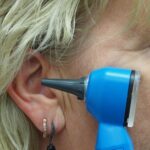Unlocking the Power of Lifestyle Medicine: A Comprehensive Guide to Transforming Health Through Everyday Choices


Photo by Afterave Essentials on Unsplash
Understanding Lifestyle Medicine: Foundations and Principles
Lifestyle medicine
is a rapidly growing medical specialty that focuses on the prevention, treatment, and even reversal of chronic diseases by addressing lifestyle factors such as nutrition, physical activity, sleep, stress management, avoidance of risky substances, and social connections
[1]
. Unlike traditional approaches that primarily rely on medication or surgery, lifestyle medicine emphasizes
evidence-based behavioral interventions
that empower individuals to take charge of their health through sustainable changes in daily habits
[3]
.
Chronic diseases like heart disease, type 2 diabetes, obesity, and some forms of cancer are strongly linked to poor lifestyle choices. By incorporating the six core pillars of lifestyle medicine, patients can significantly reduce their risk of developing or exacerbating these conditions [2] .
The Six Pillars of Lifestyle Medicine
Lifestyle medicine is structured around six key pillars, each playing a vital role in health maintenance and disease prevention:
- Nutrition: Adopting a whole-food, plant-predominant diet is central to lifestyle medicine. This approach encourages the reduction of ultra-processed foods and emphasizes nutrient-dense, minimally processed meals. Diets like the Mediterranean or DASH diet are commonly recommended for their proven benefits in reducing cardiovascular risk and improving metabolic health [1] .
- Physical Activity: Regular movement is crucial for maintaining a healthy body weight, improving cardiovascular fitness, and supporting mental wellbeing. Lifestyle medicine promotes personalized exercise regimens that fit individual needs and capabilities, aiming for consistency rather than intensity [2] .
- Restorative Sleep: Good quality sleep supports immune function, cognitive performance, and emotional regulation. Lifestyle medicine practitioners help patients achieve better sleep hygiene by addressing habits and environmental factors that impair sleep quality [2] .
- Stress Management: Chronic stress can have harmful effects on nearly every system in the body. Techniques such as mindfulness, meditation, relaxation exercises, and cognitive-behavioral strategies are integrated into care plans to reduce stress and its physical impact [2] .
- Avoidance of Risky Substances: Lifestyle medicine addresses the reduction or elimination of tobacco, excessive alcohol, and other addictive substances. Programs also support behavioral change around habits like gambling or excessive screen time [2] .
- Positive Social Connections: Strong, healthy relationships and community ties are essential for physical and mental health. Practitioners work with patients to foster meaningful connections and reduce isolation [2] .
How Lifestyle Medicine Works in Practice
Lifestyle medicine goes beyond simply giving advice. Practitioners use
person-centered techniques
and behavioral science, such as motivational interviewing and goal-setting, to help patients identify their readiness to change and create personalized plans
[1]
. This collaborative approach increases the likelihood of lasting behavior change and empowers patients to take ownership of their health journey.
For example, if a patient wants to improve their diet, a lifestyle medicine practitioner might:
- Assess current eating habits and barriers.
- Work with the patient to set realistic, measurable goals (e.g., adding one serving of vegetables per meal).
- Provide resources or coaching for healthy meal preparation at home.
- Monitor progress and adjust recommendations as needed.
This approach can be adapted for all six pillars and tailored to individual preferences, abilities, and circumstances.
Accessing Lifestyle Medicine Services
If you are interested in exploring lifestyle medicine, several pathways are available:
- Consult Your Primary Care Provider: Many primary care doctors are familiar with lifestyle medicine principles and can discuss how lifestyle changes may benefit your specific health concerns. Ask about referrals to specialists or programs in your area.
- Search for Certified Practitioners: The American College of Lifestyle Medicine (ACLM) maintains a directory of board-certified lifestyle medicine professionals. You can visit their official website and search for “lifestyle medicine provider directory” to find qualified clinicians in your region [3] .
- Community and Public Health Programs: Local health departments, hospitals, and community centers often offer programs based on lifestyle medicine principles, such as group nutrition classes, exercise workshops, or smoking cessation support. Contact your local health department or search their website for “lifestyle medicine programs” or “chronic disease prevention.”
- Education and Resources: The British Society of Lifestyle Medicine and the American College of Preventive Medicine both provide extensive educational materials for patients and healthcare professionals. For reliable information, refer to their official websites by searching for “British Society of Lifestyle Medicine” or “American College of Preventive Medicine lifestyle medicine.”
Overcoming Challenges and Sustaining Change
Making lifestyle changes can be challenging due to ingrained habits, environmental barriers, or lack of support. Lifestyle medicine practitioners are trained to help patients identify obstacles and develop strategies to overcome them. For example, if lack of time prevents regular exercise, a practitioner may suggest integrating physical activity into daily routines (e.g., walking meetings, active commuting).
To sustain long-term change, lifestyle medicine uses evidence-based techniques such as:
- Behavioral counseling and motivational interviewing
- Group support and accountability programs
- Personalized goal-setting and progress tracking
- Problem-solving skills to navigate setbacks
Studies have shown that when these methods are applied, individuals are significantly more likely to maintain healthy behaviors compared to traditional advice alone [2] .

Photo by Afterave Essentials on Unsplash
Alternative and Complementary Approaches
While lifestyle medicine stands on its own as a medical specialty, it often works best in combination with other approaches such as preventive medicine, public health interventions, and pharmacotherapy when needed. Patients may access
self-management
programs,
social prescribing
(referrals to community-based resources), or group consultations to enhance support and outcomes
[2]
.
You are encouraged to work collaboratively with your healthcare team, combining lifestyle modifications with any recommended medical treatments for the best results.
Getting Started: Step-by-Step Guide
To begin your lifestyle medicine journey:
- Discuss your interest in lifestyle medicine with your primary care provider. Ask about local resources and referrals.
- Identify which of the six pillars you are most motivated to address first. Set one or two small, achievable goals.
- Track your progress using a journal or health app, noting challenges and successes.
- Seek social support from friends, family, or support groups. Many communities offer group-based programs for lifestyle change.
- Consider connecting with a certified lifestyle medicine practitioner through the American College of Lifestyle Medicine or British Society of Lifestyle Medicine directories [3] .
- Continue to educate yourself using resources from reputable organizations. Look for patient guides, webinars, or local workshops through official society websites.
Remember, change takes time and setbacks are normal. Consistency and support are key to achieving sustainable results.






